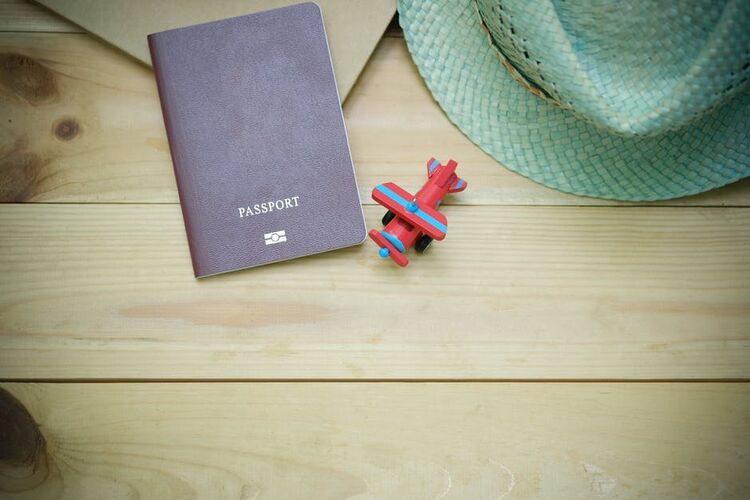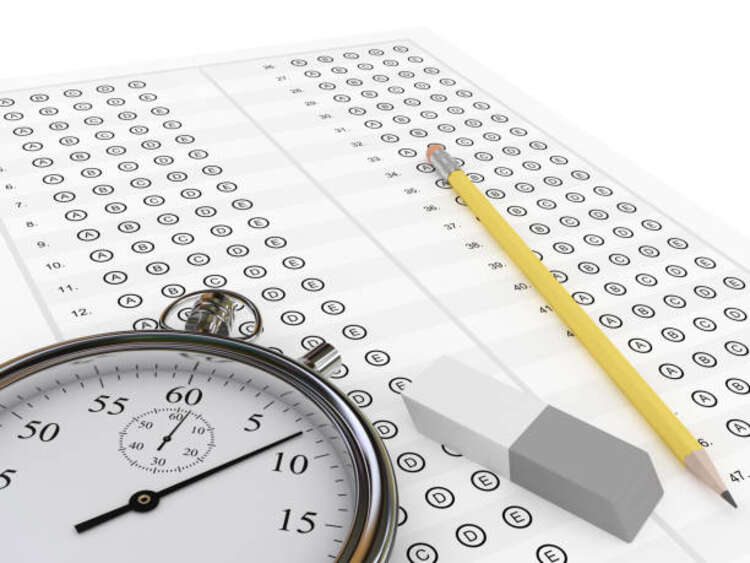Program Highlights for Master of Pharmacy in Australia
|
Program aspect |
Details |
| Program name | Master of Pharmacy in Australia |
| Specializations available | Clinical Pharmacy, Hospital Pharmacy, Community Pharmacy, Pharmaceutical Research |
| Duration | 1.5 – 2 years, depending on the university and program type |
| Tuition fees (annual) | AUD 32,000 – AUD 50,000 approximately |
| Entry requirements | Bachelor’s degree in Pharmacy or related field, English proficiency tests (IELTS, TOEFL) |
| Study modes | On-campus, online, blended |
| Career opportunities | Clinical Pharmacist, Hospital Pharmacist, Community Pharmacist, Pharmaceutical Researcher |
| Average salary post-graduation | AUD 70,000 – AUD 95,000 approximately per year |
| Relevant programs | Master of Pharmacy, Master of Clinical Pharmacy, Master of Pharmaceutical Sciences |
| Target audience | International students, including students from India and other regions |
| Online availability | Some universities offer online or blended learning options |
| Scholarship opportunities | University-specific, government-funded, need-based, and merit-based scholarships are available |
Introduction
Australia is recognized as a prime study destination for pharmacy education, attracting students from around the world with its renowned Master of Pharmacy (MPharm) programs. These programs combine theoretical knowledge with practical skills, equipping students to succeed in various roles within the pharmacy and healthcare sectors. In Australia, pharmacy programs emphasize patient care, medication management, and research, making graduates well-prepared for careers in both clinical settings and pharmaceutical research.
International students in Australia benefit from extensive clinical training, access to advanced facilities, and a vibrant, multicultural learning environment. The MPharm qualification is widely respected globally, opening doors to professional roles not only in Australia but also in other countries worldwide.
Why study for a Master of Pharmacy in Australia?
Australia offers several key benefits for students pursuing a Master of Pharmacy:
-
High-quality education
Australian universities are known for their rigorous, research-focused pharmacy programs, which blend scientific knowledge with hands-on experience.
-
Global demand for pharmacists
Pharmacy graduates are in demand across the healthcare and pharmaceutical sectors, with diverse opportunities in clinical, community, and research roles.
-
Specialization options
Many programs offer specialization options in areas such as clinical pharmacy, hospital pharmacy, and pharmaceutical research, allowing students to focus on specific interests and career paths.
-
Practical experience
Programs include clinical placements, giving students the opportunity to apply their skills in real-world healthcare settings.
Types of Master of Pharmacy programs in Australia
Numerous Master’s degrees in Pharmacy are available in Australian universities, accommodating students’ diverse academic backgrounds and career goals:
- Master of Pharmacy: A program designed for students aiming to become registered pharmacists, covering core topics like pharmacology, patient care, and pharmaceutical science
- Master of Clinical Pharmacy: Focuses on advanced clinical practice, preparing graduates to work as clinical pharmacists in hospitals and other healthcare environments
- Master of Pharmaceutical Sciences: Emphasizes pharmaceutical research, ideal for students interested in working in research and development within the pharmaceutical industry
- Online and blended programs: Certain universities offer online or part-time options, allowing flexibility for international students and working professionals.
Master’s in Public Health in Australia
Entry requirements for Master of Pharmacy in Australia
To apply for a master of pharmacy in Australia, international students generally need:
- Academic requirements: A bachelor’s degree in a relevant field, such as science or health science, within the past 10 years frequently with a minimum GPA
- English language proficiency: Required scores usually include IELTS (6.5 – 7.0) or equivalent TOEFL scores
- Relevant experience: Some programs may prefer applicants with prior experience in a pharmacy or healthcare setting
- Additional documents: Many programs require a statement of purpose, academic references, and sometimes an interview
Top universities offering a Master of Pharmacy in Australia
Australia is home to some of the top universities for pharmacy studies, known for their advanced facilities, faculty expertise, and clinical training. Here’s a look at the top universities for a Master of Pharmacy in Australia, including their global ranks and tuition fees:
|
University |
QS World University Ranking 2025 |
Annual tuition fees (AUD) |
| University of Melbourne | 13 | AUD 45,000 – AUD 50,000 approximately |
| University of Sydney | 18 | AUD 47,000 – AUD 52,000 approximately |
| University of Queensland | 40 | AUD 42,000 – AUD 48,000 approximately |
| Monash University | 37 | AUD 44,000 – AUD 50,000 approximately |
| University of South Australia (UniSA) | 340 | AUD 36,000 – AUD 42,000 approximately |
| Curtin University | 174 | AUD 38,000 – AUD 45,000 approximately |
| Griffith University | 243 | AUD 35,000 – AUD 44,000 approximately |
| University of Tasmania | 293 | AUD 33,000 – AUD 41,000 approximately |
| University of Newcastle | 129 | AUD 34,000 – AUD 42,000 approximately |
| University of Western Australia (UWA) | 77 | AUD 40,000 – AUD 46,000 approximately |
Please Note: Tuition fees are approximate and may vary. Please consult university websites for the most current information.
Masters in Management in Australia
Master of Pharmacy courses in Australia: Program details
Australian pharmacy programs provide a thorough blend of scientific knowledge, practical training, and specialization. Key program details include:
-
Course duration
Programs typically range from 1.5 to 2 years, depending on the university and specific requirements.
-
Core subjects
Common courses include pharmacology, medicinal chemistry, clinical pharmacotherapy, and pharmaceutical ethics.
-
Specialization options
Students can focus on clinical pharmacy, hospital pharmacy, or pharmaceutical research, tailoring their education to their career interests.
-
Practical training
Programs incorporate supervised clinical placements in hospitals and community pharmacies, providing hands-on experience in patient care.
-
Research opportunities
Some programs offer research projects or a thesis component, allowing students to contribute to pharmaceutical advancements.
Master of Pharmacy fees in Australia
The tuition fees for a master’s of pharmacy vary by university and program type. Here is an approximate range of fees for some top universities:
- University of Melbourne: AUD 45,000 – AUD 50,000 per year
- University of Sydney: AUD 47,000 – AUD 52,000 per year
- University of Queensland: AUD 42,000 – AUD 48,000 per year
- Monash University: AUD 44,000 – AUD 50,000 per year
- University of South Australia: AUD 36,000 – AUD 42,000 per year
Please note: Be aware that fees are estimates that could change. Check university websites for up-to-date information.
Master’s in Public Health in Australia
Scholarships for Master of Pharmacy in Australia
For overseas students, pursuing a Master of Pharmacy degree in Australia might be expensive. However, various scholarships are available to alleviate these costs, each with specific eligibility criteria and benefits. Below is a detailed overview of notable scholarship opportunities:
1. University-specific scholarships
- University of Melbourne – Graduate Research Scholarships
This scholarship offers fee waivers and living stipends to high-achieving students. It covers full tuition fees for up to two years for a master’s degree and provides a living allowance of AUD$ 32,400 per year (2024 rate), along with relocation grants and Overseas Student Health Cover (OSHC). Research potential and academic brilliance are the main criteria used in the selection process.
- University of Sydney – International Scholarships
The University of Sydney offers various scholarships for international students, such as the Vice-Chancellor’s International Scholarships Scheme, which provides up to AUD$ 40,000 towards tuition fees. Selection is based on academic excellence and a personal statement.
2. Government scholarships
- Australia Awards Scholarships
Funded by the Australian Government, these scholarships cover full tuition fees, return air travel, establishment allowances, and living expenses. They are awarded to students from developing countries, particularly those in the Indo-Pacific region, who demonstrate academic merit and leadership potential. Recipients are required to return to their home country for at least two years after completing their studies to contribute to its development.
- Destination Australia Scholarships
This program offers scholarships worth up to AUD$ 15,000 per year to international students who choose to study in regional Australia. It aims to attract students to regional campuses, enhancing the vibrancy and diversity of these areas. Eligibility criteria include enrollment in a full-time course at a regional campus and maintaining satisfactory academic progress.
3. External scholarships
- Pharmaceutical Society of Australia (PSA) – International Student Scholarships
The PSA offers scholarships to support international students pursuing pharmacy studies in Australia. These scholarships provide financial assistance to cover tuition fees and may include mentorship opportunities. Academic achievement, dedication to the pharmaceutical field, and community service are the main criteria used to evaluate applicants.
- Fulbright Program
For U.S. citizens, the Fulbright Program offers scholarships to study abroad, including in Australia. The program covers tuition fees, provides a living stipend, and includes health and travel allowances. Selection is based on academic merit, leadership potential, and a proposed program of study that aligns with the Fulbright mission.
Application process and tips
- Research early: Begin researching scholarship opportunities well in advance to understand deadlines and specific requirements.
- Prepare documentation: Commonly required documents include academic transcripts, proof of English proficiency, personal statements, and letters of recommendation.
- Highlight achievements: Emphasize academic excellence, leadership roles, community service, and any relevant work experience in your application.
- Adhere to deadlines: Ensure all application materials are submitted before the specified deadlines, as late applications are typically not considered.
Finding a scholarship can greatly lessen the cost of studying overseas. By diligently researching and applying for these opportunities, international students can make their goal of obtaining a Master of Pharmacy in Australia more attainable.
Master of Architecture in Australia
Career opportunities after a Master of Pharmacy in Australia
Australian Master of Pharmacy graduates have a wide range of job options in clinical and research settings, including:
- Clinical Pharmacist: Works in hospitals and healthcare centers, managing medications and collaborating with healthcare teams for optimal patient outcomes
- Hospital Pharmacist: Focuses on patient care within hospital settings, advising on drug usage and dosage
- Community Pharmacist: Employed in community pharmacies, providing medication management, health advice, and patient support
- Pharmaceutical Researcher: Engages in research to develop new medications or improve existing ones, often working in labs or with pharmaceutical firms
Salary expectations
Pharmacy graduates can expect to earn between AUD 70,000 and AUD 95,000 annually, with opportunities for higher salaries as they gain experience.
Living costs in Australia for international students
Living expenses in Australia vary depending on lifestyle and location. An outline of average monthly expenses is provided below:
- Accommodation: AUD 800 – AUD 1,500 per month
- Food: AUD 300 – AUD 500 per month
- Public transportation: AUD 100 – AUD 150 per month
- Miscellaneous: AUD 200 – AUD 400 per month
These numbers are estimates that may change depending on the city and individual preferences.
How MSM Unify can assist
MSM Unify overseas education consultants provides comprehensive support for students aspiring to pursue a Master of Pharmacy in Australia. From program selection and application assistance to visa support and accommodation guidance, MSM Unify simplifies the study abroad experience for international students.
Master’s in Public Health in Australia
Conclusion
Australia’s pharmacy programs emphasize both theoretical foundations and hands-on experience, ensuring that students graduate with a well-rounded understanding of pharmacology, clinical practice, and patient management. With various specializations, including clinical pharmacy and pharmaceutical research, students can pursue career paths tailored to their interests, whether in hospitals, community pharmacies, or pharmaceutical companies.
Moreover, Australia’s emphasis on professional development, coupled with a welcoming multicultural environment, provides students with an enriching educational experience that extends beyond academics. For those passionate about impacting public health and improving patient outcomes, a Master of Pharmacy from an Australian institution opens doors to a rewarding, impactful, and globally relevant career in the field of healthcare.
FAQs
1. What are the entry requirements for a Master of Pharmacy in Australia?
Typically, a Bachelor’s degree in Pharmacy, English proficiency, and, in some cases, relevant work experience are required for a Master of Pharmacy in Australia.
2. Which universities offer a Master of Pharmacy in Australia?
Among the best universities offering a Master of Pharmacy in Australia are Monash University, the University of Queensland, the University of Sydney, and the University of Melbourne.
3. What is the cost of a Master of Pharmacy for international students in Australia?
Tuition fees for a Master of Pharmacy in Australia range from AUD 32,000 – AUD 50,000 per year, depending on the university.
4. Are there online Master of Pharmacy programs in Australia?
Yes, several universities offer online and blended programs for a Master of Pharmacy in Australia, allowing flexible study options.
5. What specializations are available in pharmacy in Australia?
Options in pharmacy in Australia include Clinical Pharmacy, Hospital Pharmacy, and Pharmaceutical Research.
6. How long does it take to complete a Master of Pharmacy in Australia?
Master of Pharmacy programs in Australia usually last between 1.5 to 2 years, depending on study mode and university requirements.
7. Is Australia a good place for Indian students to study pharmacy?
Yes, Australia offers high-quality pharmacy education and ample career opportunities for Indian students studying pharmacy.
8. Can international students work in Australia after completing a Master’s of Pharmacy?
After completing a Master of Pharmacy, graduates can apply for post-study work visas to gain experience in Australia.
9. What is the average salary for pharmacy graduates in Australia?
Pharmacy graduates in Australia typically earn between AUD 70,000 and AUD 95,000 annually.
10. What scholarships are available for pharmacy students in Australia?
Scholarships for pharmacy students in Australia include university-specific, government-funded, and external options.
















